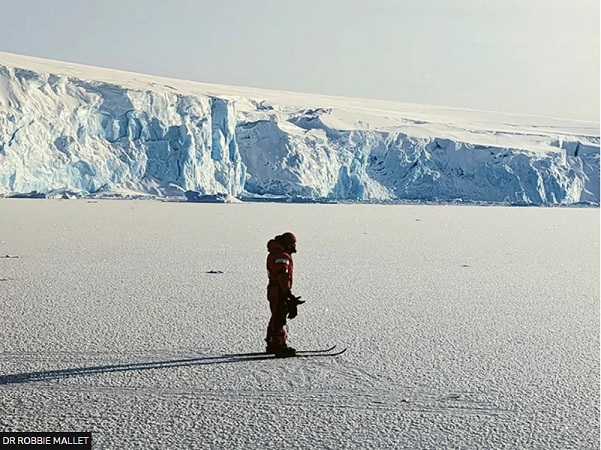
The sea-ice surrounding Antarctica is well below any previous recorded winter level, satellite data shows, a worrying new benchmark for a region that once seemed resistant to global warming.
"It's so far outside anything we've seen, it's almost mind-blowing," says Walter Meier, who monitors sea-ice with the National Snow and Ice Data Center.
An unstable Antarctica could have far-reaching consequences, polar experts warn.
Antarctica's huge ice expanse regulates the planet's temperature, as the white surface reflects the Sun's energy back into the atmosphere and also cools the water beneath and near it.
Without its ice cooling the planet, Antarctica could transform from Earth's refrigerator to a radiator, experts say.
The ice that floats on the Antarctic Ocean's surface now measures less than 17 million sq km - that is 1.5 million sq km of sea-ice less than the September average, and well below previous winter record lows.
That's an area of missing ice about five times the size of the British Isles.
Dr Meier is not optimistic that the sea-ice will recover to a significant degree.
Scientists are still trying to identify all the factors that led to this year's low sea-ice - but studying trends in Antarctica has historically been challenging.
In a year when several global heat and ocean temperature records have broken, some scientists insist the low sea-ice is the measure to pay attention to.
"We can see how much more vulnerable it is," says Dr Robbie Mallet, of the University of Manitoba, who is based on the Antarctic peninsula.
Already braving isolation, extreme cold and powerful winds, this year's thin sea-ice has made his team's work even more difficult. "There is a risk that it breaks off and drifts out to sea with us on it," Dr Mallet says.
Sea-ice forms in the continent's winter (March to October) before largely melting in summer, and is part of an interconnected system that also consists of icebergs, land ice and huge ice shelves - floating extensions of land ice jutting out from the coast.
Sea-ice acts as a protective sleeve for the ice covering the land and prevents the ocean from heating up.
Dr Caroline Holmes at the British Antarctic Survey explains that the impacts of shrinking sea-ice may become evident as the season transitions to summer - when there's potential for an unstoppable feedback loop of ice melting.
As more sea-ice disappears, it exposes dark areas of ocean, which absorb sunlight instead of reflecting it, meaning that the heat energy is added into the water, which in turn melts more ice. Scientists call this the ice-albedo effect.
That could add a lot more heat to the planet, disrupting Antarctica's usual role as a regulator of global temperatures.

